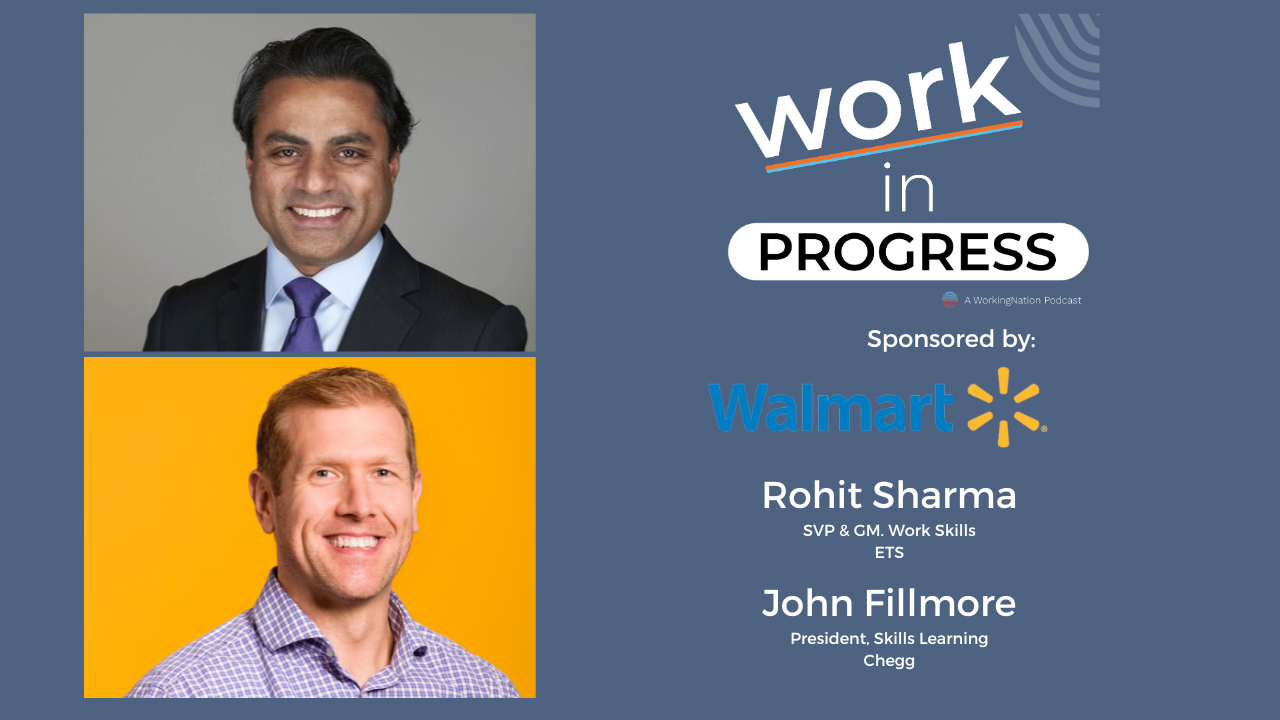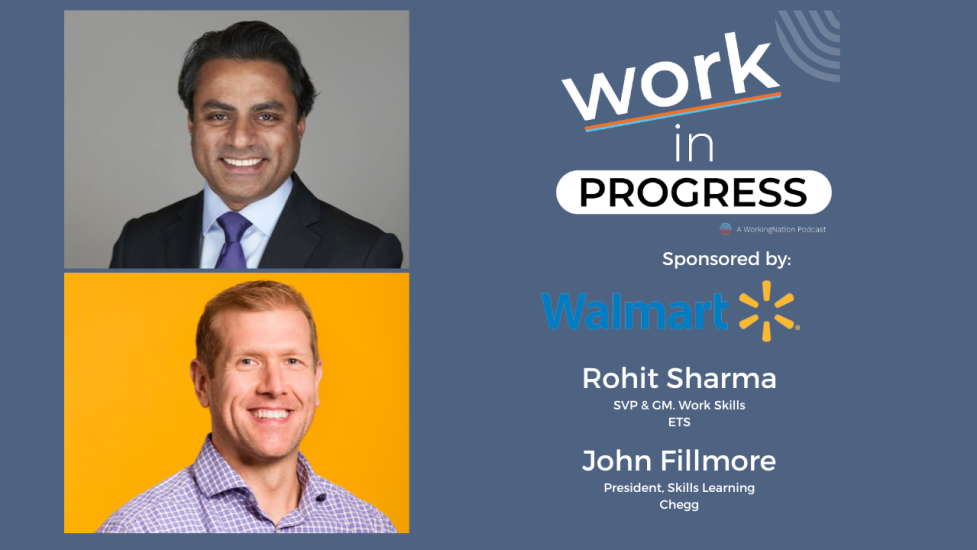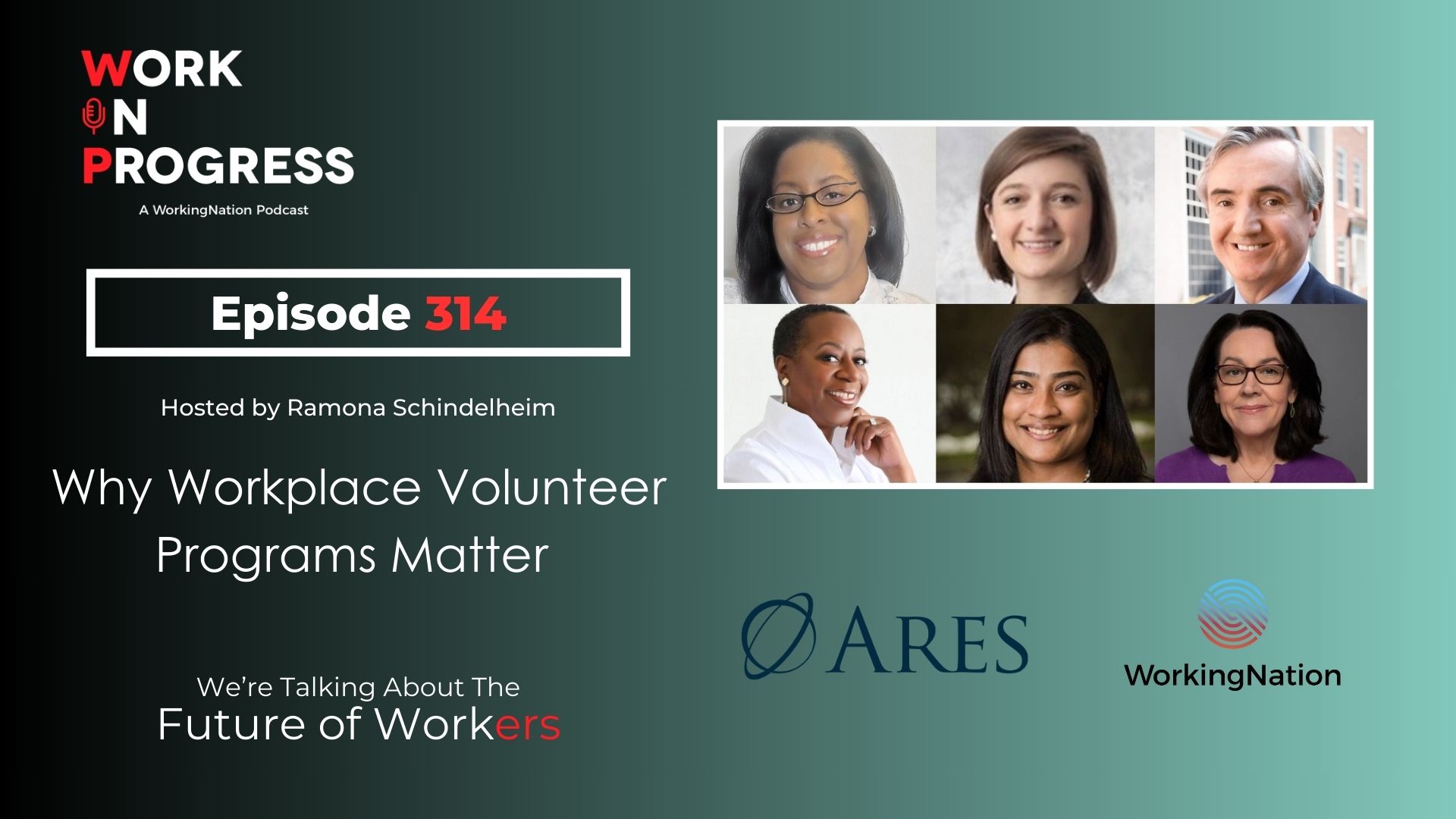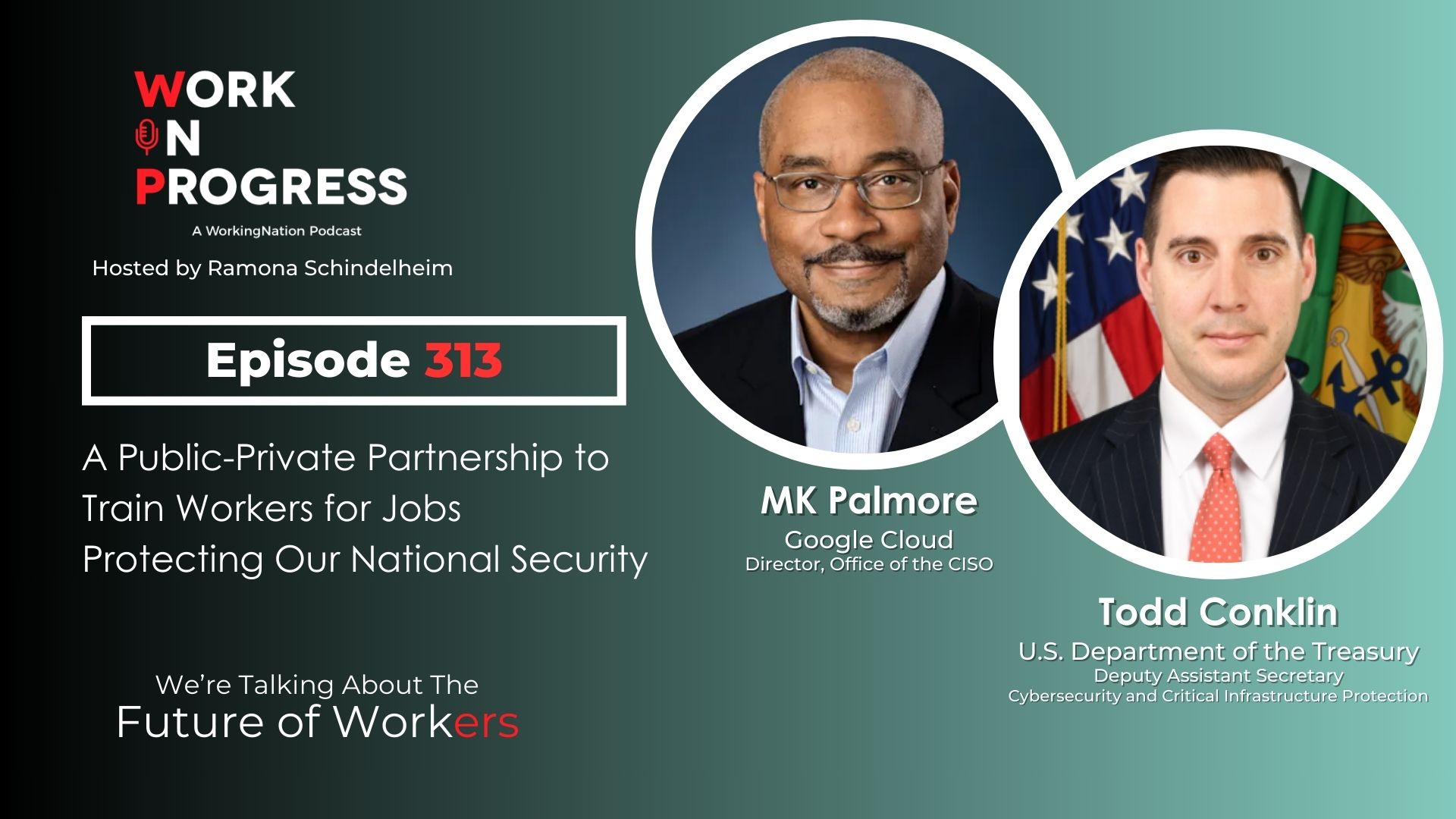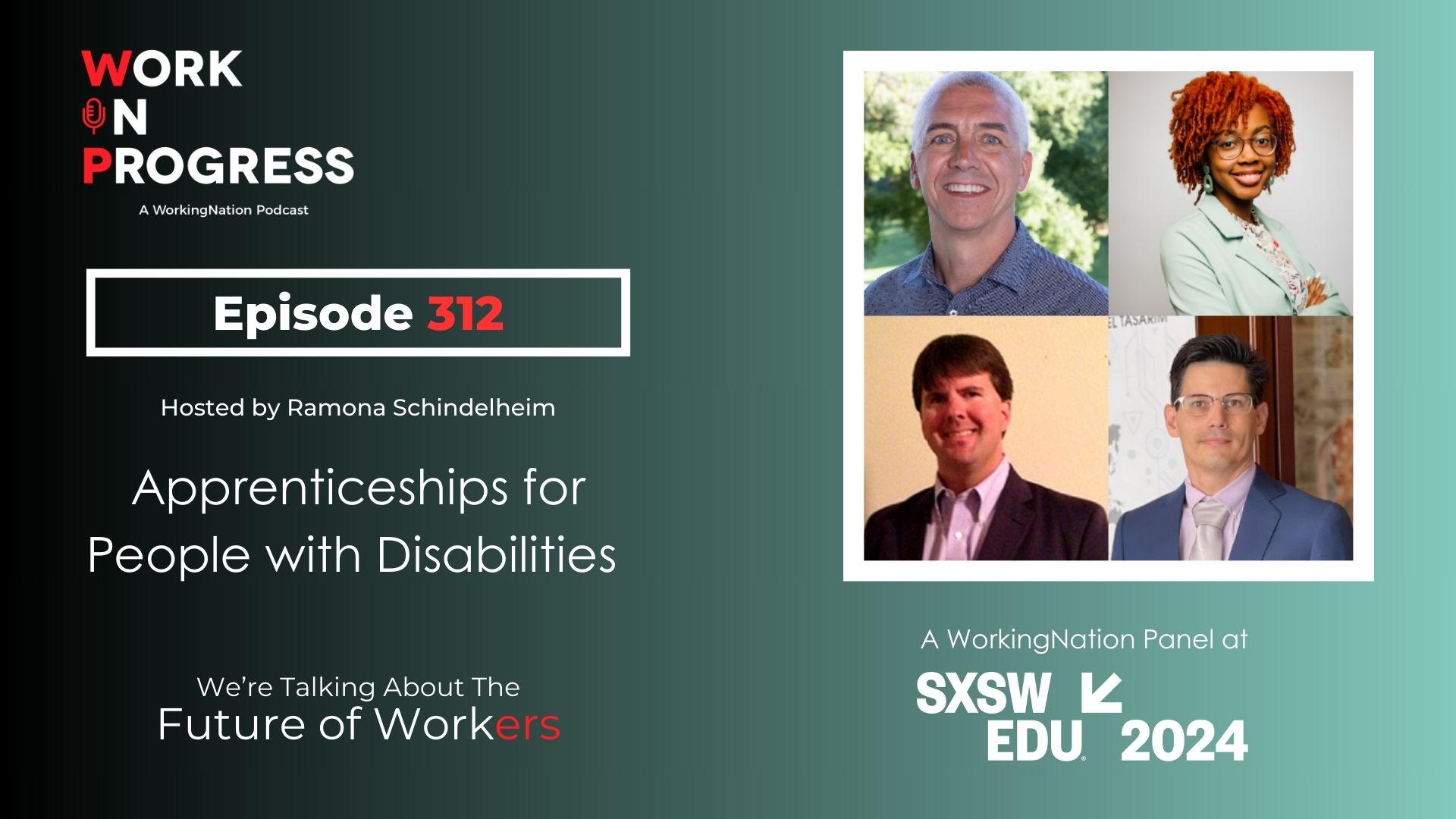Podcast: Play in new window | Download | Embed
Subscribe: Apple Podcasts | Google Podcasts | Spotify | Pandora | Youtube Music | RSS
In this episode of the Work in Progress podcast, we’re talking artificial intelligence and education with Rohit Sharma of ETS and John Fillmore of Chegg.
For the past few months, we’ve been hearing that artificial intelligence and machine learning could transform nearly every job on the planet. With the introduction and popularity of ChatGPT, it feels like that transformation might be coming very quickly – some think it might be too quickly.
Last month in San Diego, I attended the annual ASU+GSV Summit, a gathering of leaders sharing ideas on transforming society and business around learning and work.
There I spoke with several leaders in education and learning solutions, including Rohit Sharma, senior vice president of Global Education and Workforce Solutions at ETS, and John Fillmore, president of Skills Learning at Chegg.
I wanted to know how the introduction of AI into learning at all levels will transform education and the way people prepare for careers.
Chegg is an education tech company that is increasingly offering online training to help build skills needed and wanted in today’s job market. Fillmore says ChatGPT, AI, and machine learning are moving fast, but he sees that as a good development. “I’m a massive optimist on how technology is going to impact the future of work. The reality is every technology change we’ve had over the past 200 years has ended up creating dispersion, but ultimately creating more need for talent, more need for great jobs.”
For example, he believes companies are going to need hundreds of thousands more data analysts who can not just plug questions into the computer looking for answers, but who can look at those answers and determine the right strategy for a business. “So, can I tell the story of why this answer should lead us to make a different decision than we are making today? Those people who are getting displaced are going to want to go into this, this is actually why we work with Walmart, Target, and Macy’s and lots of these companies that want to train their frontline workers for the jobs of tomorrow.”
Fillmore adds, “Traditionally, higher education has not moved fast enough to customize all of those types of training needs that an employer is going to have, because as you mentioned earlier, those are going to change dramatically and faster than I think we’ve ever seen in human history.”
ETS is the world’s largest nonprofit educational testing and assessment organization.
Sharma says, given the acceleration of artificial intelligence, ETS is looking at how they can leverage it to better determine a student’s skills and where they need more training, in school or on the job. “There are so many micro skills. We’ll be able to tell you how good you are perhaps in certain aspects of a communication. Are you better in written communications versus oral communication? Or are you better in analytical reasoning that can be applied in certain jobs and contexts that may be more suited to your strengths?
“That’s going to be important because there’s so many things that are new, we can’t just put people in a training program and expect a miracle to happen, and it needs to be complimented with on-the-job training,” adds Sharma.
To get more details of how Sharma and Fillmore expect skills-based training and education to evolve even further – and faster – listen to the podcast here. Or you download it wherever you get your podcasts.
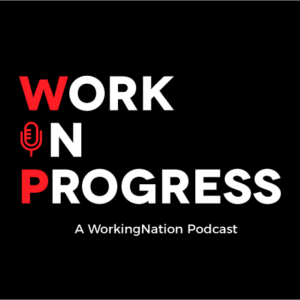
Episode 272: Rohit Sharma, Senior Vice President of Global Education and Workforce Solutions at ETS, and John Fillmore, President of Skills Learning at Chegg
Host & Executive Producer: Ramona Schindelheim, Editor-in-Chief, WorkingNation
Producer: Larry Buhl
Executive Producers: Joan Lynch and Melissa Panzer
Theme Music: Composed by Lee Rosevere and licensed under CC by 4.0
Download the transcript for this podcast here.
You can check out all the other podcasts at this link: Work in Progress podcasts

